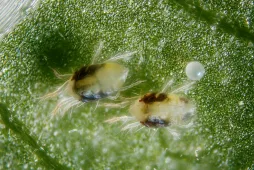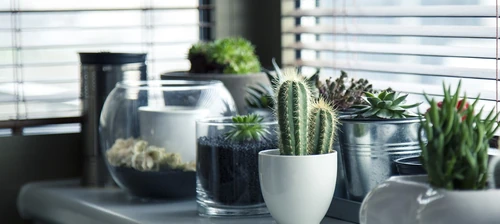Dracaena reflexa, a typical plant of Reunion Island
On Reunion Island, Dracaena reflexa, often called bois de chandelle, is used as a stake for vanilla or planted to delimit a plot of land. It can also be grown indoors in less clement climates.
How to recognize Dracaena reflexa?
Outdoors, Dracaena reflexa reaches a height of 6 meters. Indoors and in pots, the shrub can reach two meters.
While draco dragon tree can be recognized by its parasol-like shape and interlacing branches, its cousin, Candlewood, has an untidy habit. Its bundled stems end in spiral tufts of leaves.
Blades are elliptical and the midrib is not always visible. Unlike the red-edged leaves of Dracaena reflexa var. Angustifolia, those of Dracæna reflexa are green and not variegated. They measure between five and 30 centimetres long and up to five centimetres wide.
When growing in its natural environment, candlewood is adorned with fragrant flowers. These bloom in spring, and are white or pale yellow in color.
Fruits appear in June. Behind the greenish husk lie berries one centimeter in diameter. They contain an orange pulp and one or two seeds.
In addition to its depolluting virtues, Dracæna reflexa is said to have medicinal properties.
Our maintenance tips
Plenty of sun, but without burning the leaves, regular watering, but without drowning the roots... Even if the plant is suitable for beginners, caring for your Dragonwood reflexa requires rigor and moderation.
Watering
Dragonflies reflexa appreciate constant but moderate humidity. Before watering your plant, make sure it needs it by touching the surface of the potting soil. If two or three centimetres of the surface is dry, you can water.
If you can, use non-calcareous water such as rainwater or filtered water.
Make sure the water doesn't stagnate in the saucer or planter.
If you can, use non-calcareous water such as rainwater or filtered water.
Make sure the water doesn't stagnate in the saucer or planter.
Spray
Your Dragonwood reflexa is a tropical plant. It appreciates humidity. Spray its foliage with water at room temperature.
Avoid calcareous water, which leaves white marks on the leaves. Prefer rainwater or filtered water.
Repotting
Every spring, repot your Dracaena reflexa to give it more space.
Choose a pierced pot slightly larger than the previous one. First lay a bed of clay balls or gravel to optimize drainage. Top it off with a special potting soil for green plants. This will provide your shrub with nutrients, at least for a few weeks.
You can place the pot in a saucer filled with moist clay balls. This will improve the hygrometry without risk to the roots.
Cleaning
To improve photosynthesis, clean the foliage with a damp sponge.
Prune
Remove dry leaves. They exhaust the plant and slow its growth. If you use an instrument (pruning shears, scissors), make sure it's clean.
Plantation
When the risk of frost has passed, it's time to plant.
Dragonflies reflexa tolerate mild winters. If you live in the south of France or by the sea, you can plant them in the ground.
Choose a bright location, but without direct sunlight. Make sure the soil is well drained. If the soil in your garden is heavy or retains moisture, plant them at the top of a mound or on a slope.
After loosening the soil, dig a hole three times the size of your Dragonwood reflexapot. Place a layer of clay balls or gravel and transplant. Fill in with a mixture of ordinary soil and sand, or even potting soil for citrus and Mediterranean plants.
Protect the base with a mineral mulch (pebbles, gravel, pebbles, slate, etc.) before watering abundantly.
Cutting
Cutting is carried out during the strong growth phase, generally in spring and early summer.
Cut off the end of a branch about fifteen centimeters long. Remove all leaves except the top pair.
Prepare a pierced pot with a bed of clay balls at the bottom for drainage. Pour in a mixture of sand and potting soil. Preferably use a horticultural or seedling potting soil, as these are rich in nutrients. Plant your graft in this pot.
Place your cutting in a bright spot away from direct sunlight and water.
Diseases / Threats
Information
| Family | Asparagaceae - Asparagaceae |
| Type | Dracaena - Dracaena |
| Species | Dracaena reflexa - Dracaena reflexa |
| Lifecycle | Perennial |
| Foliage | Evergreen |
| Exposures | |
| Substrats | |
| Planting methods |
Open ground In pots In tubs Planter |
| Categories | |
| Tags |
Beginner Increvable |
| Origin |
Indian Ocean |
| Hardiness (USDA) | 10a |
| Leaf color |
|
| Flower colors |
|
| Fruit color |
|
Discover plants from the same family
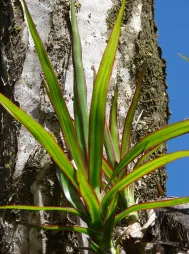
Dragonwood reflexa var. angustifolia
Discover
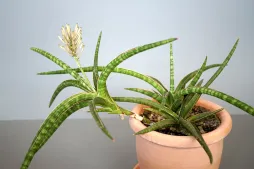
Dracaena ballyi
Discover
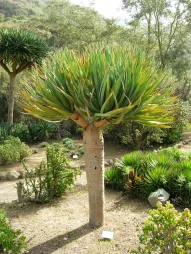
Dragon tree draco
Discover
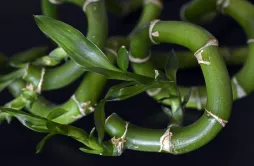
Dragonwood braunii
Discover













